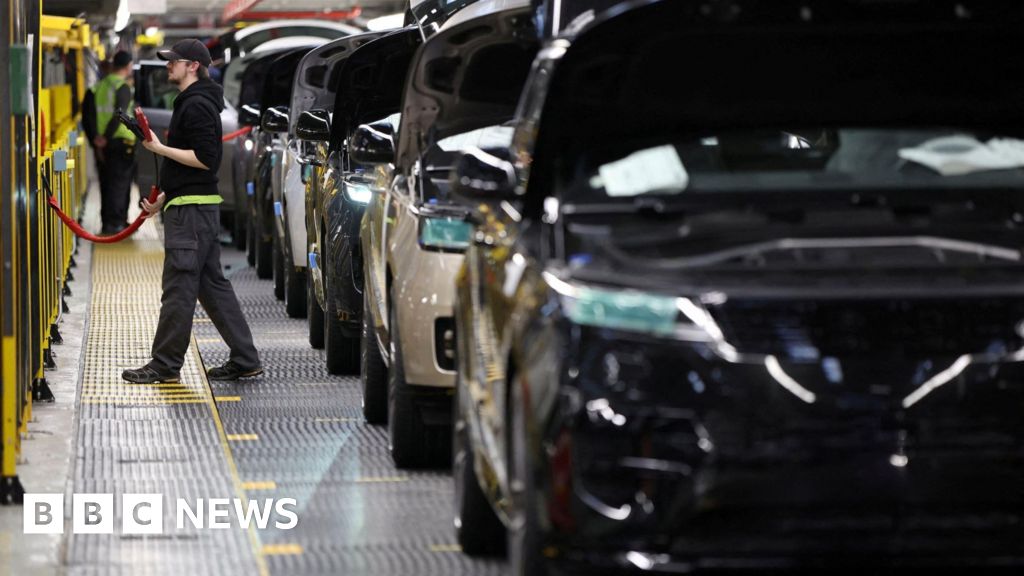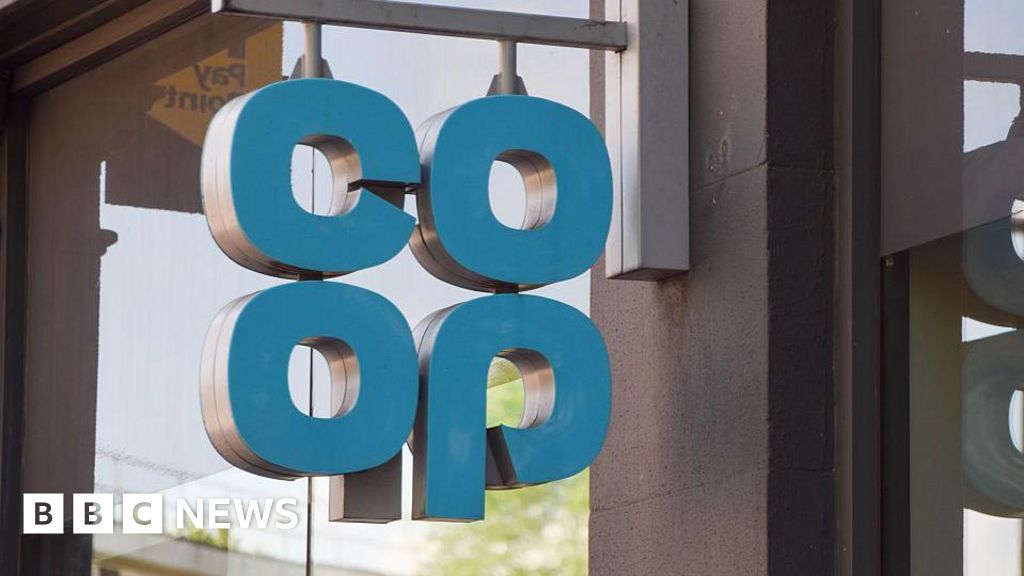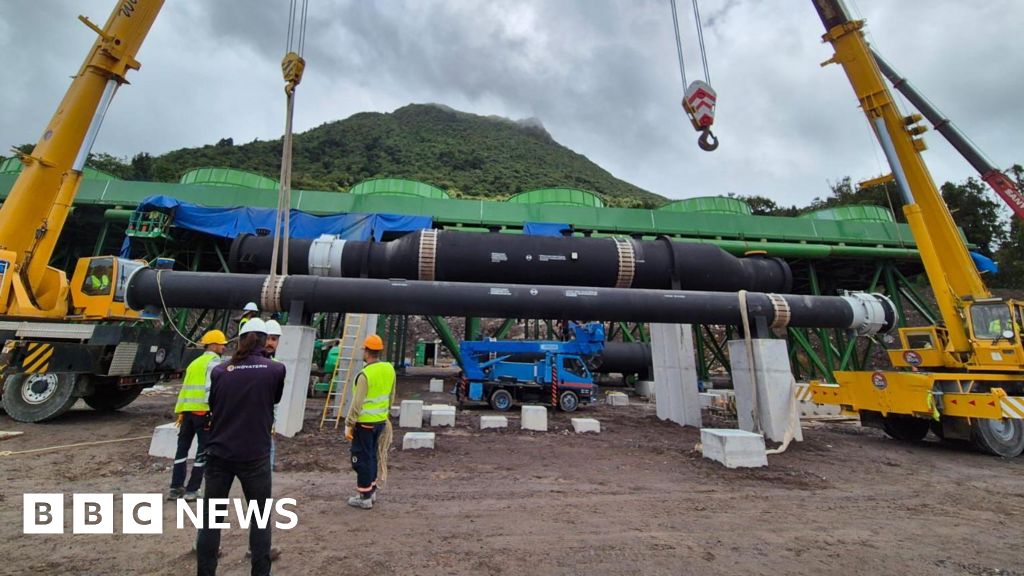ARTICLE AD BOX
By Douglas Fraser
Business and economy editor, Scotland
Image source, Tom Parkes/RBS
- The first female boss of NatWest is a role model and an agitator, trying to get more women into business and into top posts.
- Alison Rose wants her Edinburgh-based bank to be more than transactional, deepening relationships with customers.
- Her ambition is not to expand again to foreign shores, but to help the great carbon transition - while continuing to fund emitters, from oil wells to dairy cows.
Dream bigger, says Alison Rose, encouraging younger women to set up in business.
The bank boss is three years into her role atop NatWest, including Royal Bank of Scotland and Ulster Bank. It is also three years since publication of her inquiry for the UK government into the giant gender gap where female entrepreneurs could be.
Her approach was not to take a hammer to the glass ceiling, but to calculate how much more could be gained if women reached the same level of business activity in Britain as in similar countries, with a round figure of £250bn of revenue flowing through the UK economy.
So her cause goes on, "agitating" for several blockages to be removed, but pointing also to progress.
The past year has seen 156,000 new businesses set up by women, a 37% increase on 2019 levels. "Really pleasingly, there's a real impact in the 18 to 24 year old group of young women starting businesses", she said.
Perhaps the schools activity is paying off. Or perhaps the pandemic made women think about what they could do with those side hustles and dormant dreams.
But the pandemic, notes Rose, was also a time when women felt it more stressful to be running their own businesses compared with men, by 77% to 56%.
Role model
They also found their attention distracted more often by caring responsibilities, from children's schoolwork to elderly parents. One in six women entrepreneurs had to take time away for caring roles, versus one in 10 for men.
"Has there been enough progress? No," Alison Rose told me, during a wide-ranging interview this week.
"We're not at parity, we're not at equality, but we are seeing more focus. The burdens and barriers are still there, but the concerted action to address some of these barriers is making a difference."
The barriers that continue to concern her most? Access to finance is top of the list. Only 1% of venture capital funding was going to female-led banking, and that's gone up to 5%.
To that, add the ambition to ask for finance, reducing those caring responsibilities, more open networking, presenting business as a creative career option from schools upwards, and providing role models.
Alison Rose is one such role model, one of only 10 women who lead the hundred biggest companies on the London Stock Exchange. As she walks through the Edinburgh headquarters atrium, she is greeted with some excitement and a little awe at what she represents.
Aged 53, and the first woman to lead the bank, she has only ever worked for one employer since she left Durham University 30 years ago. That employer has been through some big leadership changes in that time and, let's not forget, a near calamitous crash.
She was close to the epicentre of that, working in the investment bank in London, now recalling how it left colleagues traumatised. She says there was a choice of leaving or staying to sort out the mess. She did the latter, as more than a trillion pounds-worth of exposure to dud loans, toxic liabilities and failed investments were unwound.
Her two predecessors, Stephen Hester and Ross McEwan, had the task of rescuing Royal Bank of Scotland and turning it around from more than £50bn of cumulative losses.
Having ditched RBS as the group brand, while insisting it remains proud and true to its Scottish roots, the current chief executive has the happier task of setting course for a future without the UK government's stake acting as both a safety net and a brake.
With the public ownership now below 50% of shareholdings, she says that has more of a symbolic than a practical significance.
The private sector investors who now own the majority of shares are not pushing for a change of direction or strategy, says the chief executive. Even though NatWest could now look to reduce its vulnerability to the UK economy by expansion elsewhere, that is not part of her plan. Instead, it's all about deepening customer relationships.
It's not about transactions, but about relationships, she keeps repeating. Every answer to every question includes encouragement to work with relationship managers, or a financial health check the bank can offer, with not only funding but advice and other help for business and personal customers.
'Great green transition'
One of the liveliest areas for advice is in the great green transition to net zero. Customers can get access to information on better insulation, renewable generation and boiler replacement - from a branch manager wearing a uniform made out of recycled plastic bottles.
Companies can get help in taking the carbon out of their supply chain. More than a billion pounds has been committed so far to green mortgages, at a slightly lower interest rate for those homes with better energy performance certificates.
NatWest has been criticised for continuing to finance oil and gas. Its chief executive says it's on condition that they have a credible plan for transition to net zero carbon.
And if they don't? "Our preference is to work with them, because we want to make sure they are transitioning. The worst thing that could happen is that we stop lending to these companies or sectors with high emissions."
Image source, Getty Images
Image caption,Rose wants to support agricultural businesses in their transition to net zero
The worst thing? Not everyone sees it that way.
"The emissions won't reduce if banks withdraw from those hard to abate sectors. How are they going to transition? Someone else will lend to them, and we won't have focused on the outcome of getting emissions out of the atmosphere."
While the focus is on oil and gas, she wants to talk about the opportunity for perhaps 30,000 small and medium-scale enterprises exploiting market opportunities in the transition. And about agriculture: 2% of lending, but 19% of emissions on NatWest's customer books.
All relationship managers who specialise in farming have just been intensively drilled in the issues their clients have to face if they are to cut emissions from their activities, transport, planting, harvesting and high-methane belching of dairy cows.
"We're not going to stop lending to agriculture. We help them: on renewable sources, on the supply chain, with supermarkets, to try and help everyone with the transition - to put tools in the hands of people to see the different choices they can make."

 2 years ago
39
2 years ago
39








 English (US) ·
English (US) ·